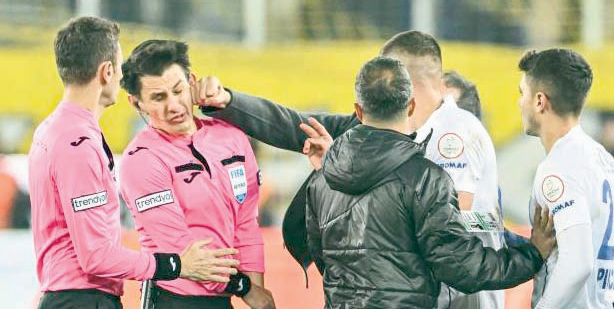![Migrant kids and glaring abuse of child rights [Article]](http://citifmonline.com/wp-content/uploads/2016/11/migrant-abuse-3.jpg)
She stops by a motorbike or “Mahama Kambu” – the tricycle taxi in the Wa Municipality – she stretches one hand for money, and puts the other on her stomach – she says, “give me money to buy food.”
Her dress covers the money bag tied to her waist line. Her name, “Amina,” 10, her complexion is Caucasian – she speaks pidgin – “this motor na for you?”

Two of these migrant children begging at the traffic light in Wa
“Have you ever lived in Nigeria?” she nods affirmatively. I asked, “which country do you come from?” she responds, Niger.
Across the road, a man in “jarabia” – a long dress worn mostly by Muslims with a cap to match, crosses the road – the NIB/Bank of Africa junction.
He comes to “Amina.” He collects some money from her and walks away.
What’s the fate of this child in the next ten years when his right to education is denied?
In front of an abandoned shop, two women sit on a bench – their mothers. Across the road, two children are seen begging. There’re those who throw some coin or note at them; others, their smile or contemptuous look.
This is the day to day activity of migrant children. They’re Nigeriens. They’re involved in begging on the streets of Ghana – Accra, Kumasi, Sunyani, Tamale and Wa. The crux of this matter is the rights of these children – education and child labour.
Various human rights documents that member countries of the African Union and United Nations have ratified show that there’s a violation of the rights of these children – the African Charter on the Welfare and Rights of the Children (ACRWC ), the Convention on the Rights of the Child (CRC), the International Covenant on Economic, Social and Cultural Rights (ICESCR), the UNESCO Convention Against Discrimination in Education , the Universal Declaration on Human Rights, and the Human Rights of Migration Law.

These children spend their day begging on the streets of Wa. What becomes of their education? According to ACRWC Article 11, “every child shall have the right to an education” the CRC Article 28 (a), “States Parties recognize the right of the child to education, and with a view to achieving this right progressively and on the basis of equal opportunity, they shall, in particular make primary education compulsory and available free to all”
CRC, Article 19, “States Parties shall take all appropriate legislative, administrative, social and educational measures to protect the child from all forms of physical or mental violence, injury or abuse, neglect or negligent treatment, maltreatment or exploitation, including sexual abuse, while in the care of parent(s), legal guardian(s) or any other person who has the care of the child”.
Sustainable Development Goals (SDGs) 4, 5, 8 and 16 and targets make a case for the rights of these children. Goal 4, “ensure inclusive and equitable quality education and promote lifelong learning opportunities for all”, goal 5, “achieve gender equality and empower all women and girls”, goal 8, “promote sustained, inclusive and sustainable economic growth, full and productive employment and decent work for all” and goal 16, “promote peaceful and inclusive societies for sustainable development, provide access to justice for all and build effective, accountable and inclusive institutions at all levels”
The world celebrates Universal Children’s Day on November 20. The UN General Assembly this established this celebration in 1954 and subsequently adopted the Declaration of the Rights of the Child in 1959 as well as the Convention on the Rights of the Child in 1989.

The celebration is to promote international togetherness, awareness among children worldwide and improving children’s welfare. On the contrary, this situation of Nigerien children begging on the streets of some parts of Ghana and the West African sub-Region has been in existence for quite long.
Has anyone bothered to find out how these children will end up? No education and no skill – they become “cheap labour” for various terrorist groups who are threatening our continent and the world at large.
The Nigerien Embassies across the West African sub-region, the African Union (AU), the Economic Community of West African States (ECOWAS), United Nations International Children’s Emergency Fund (UNICEF), United Nations Educational, Scientific and Cultural Organization (UNESCO), and Non-Governmental Organisations involved in Child Rights across the globe must get their acts together to ensure that the continued denial of the rights of these children comes to an end.
Child rights go beyond ratifying documents – it’s holding States Parties accountable, and enforcing the rights no matter the national residence of these children. Arise for these children.
–
By: Alex Blege
The writer is a freelance journalist with interests in human and social development and sustainable development. Email: [email protected]/[email protected]
Read Full Story




















Facebook
Twitter
Pinterest
Instagram
Google+
YouTube
LinkedIn
RSS